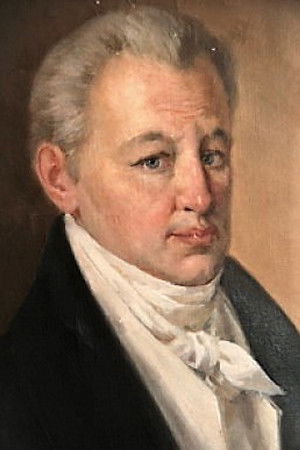
Ivan Kotliarevsky
Poet and playwright; the ‘founder’ of modern Ukrainian literature. Kotliarevsky's greatest literary work is his travesty of Virgil's Aeneid, Eneïda, which he began writing in 1794. Eneïda was written at a time when popular memory of the Cossack Hetmanate was still alive and the oppression of tsarist serfdom in Ukraine was at its height. Kotliarevsky's broad satire of the mores of the social estates during these two distinct ages, combined with the in-vogue use of ethnographic detail and with racy, colorful, colloquial Ukrainian, ensured his work's great popularity among his contemporaries. It spawned several imitations (by Petro Hulak-Artemovsky, Kostiantyn Dumytrashko, Pavlo Biletsky-Nosenko, and others) and began the process by which the Ukrainian vernacular acquired the status of a literary language, thereby supplanting the use of older, bookish linguistic forms. Kotliarevsky's operetta Natalka Poltavka (Natalka from Poltava) and vaudeville Moskal’-charivnyk (The Muscovite-Sorcerer) were landmarks in the development of Ukrainian theater. Written ca 1819, they were first published in vols 1 (1838) and 2 (1841) of the almanac Ukrainskii sbornik edited by Izmail Sreznevsky. Both were written for and performed at the Poltava Free Theater; both, particularly the first, were responses to the caricatures of Ukrainian life in Prince Aleksandr Shakhovskoi's comedy Kazak-stikhotvorets (The Cossack Poetaster), which was also staged at the Poltava Theater. As a playwright, Kotliarevsky combined the intermede tradition with his knowledge of Ukrainian folkways and folklore.
Känd för: Writing
Födelsedag: 1769-09-09
Födelseort: Poltava, Russian Empire [now Ukraine]
Kallas också: